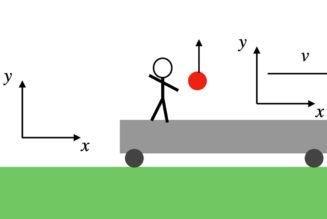“This destroyed household that now stands between the sexes is a wound that is suffered inescapably by both men and women.” My eyes were opened when I read these words of Wendell Berry. My wife’s suffering in a home arrangement that has shown itself more and more to be unnatural is in fact also very much my problem; indeed, a problem for our marriage.
There is something unnatural about the home that is consumptive and non-productive, and that is left almost exclusively in the care of a housewife while her husband works somewhere else (indeed, even if ‘remotely’ from home). The most obvious casualty in this form of home has been and is the wife, often overwhelmed and isolated while also stripped of many of the richer aspects of her work in the home.
Berry writes, “Thus housewifery, once a complex discipline acknowledged to be one of the bases of culture and economy, was reduced to the exercise of purchasing power.” There was and is of course still much ‘housework’ to be done, but it tends to be stripped of its more artful aspects, as seen for instance in how ‘convenience’ tends to replace the traditional standard of ‘thrift,’ which latter was “a complex standard, requiring skill, intelligence, and moral character.”
But “degenerate housewifery is indivisible from degenerate husbandry.” And Berry goes further, with this arresting assertion:
If we removed the status and compensation from the destructive exploits we classify as ‘manly,’ men would be found to be suffering as much as women… they [too] are in exile from the communion of men and women, which is their deepest connection with the communion of all creatures.
And what is that communion of men and women from which most of us in various degrees are in exile? It is marriage and the household in which husbandry and housewifery too are married.
In the end this about much more than any particular manifestations of ‘husbandry’ or ‘housewifery’—though of course these must be incarnated in specific ways. This is about recognizing the naturalness and thus a certain necessity of crafting life together through a cluster of embodied arts that fulfill us and bind us together, and so can help make our homes what we so want them to be.
Rediscovered husbandry and housewifery will surely look different both from what most of us have seen and from what it looked like in the past. Yet we will need to learn from the past and from the demands and limits of our contemporary situation.
Here we touch on primordial realities concerning essential features of any human life—and for this reason we should feel an urgency, and also have confidence that what is natural can always be rediscovered, and enacted in any time and place. Especially by the aid of grace. ~ ~ ~
TWO RESOURCES ON THIS FRONT: Announcing LIFECRAFT DAY AT THE BARN: Husbandry and Wifery: Reclaiming the Practical Arts for a Flourishing Household. LIVE IN PERSON at the Barn. INFO & REGISTER HERE. Saturday June 29.
NEW PODCAST EPISODE TODAY: THE FAMILY PIG: ITS PLACE IN OUR HOME Join Sofia and me as we share how raising and harvesting pigs has changed our home, and how such work can change any home. Listen to this and our other episodes wherever you get your podcasts, or at Youtube.
Husband, father, and professor of Philosophy. LifeCraft springs from one conviction: there is an ancient wisdom about how to live the good life in our homes, with our families; and it is worth our time to hearken to it. Let’s rediscover it together. Learn more.









